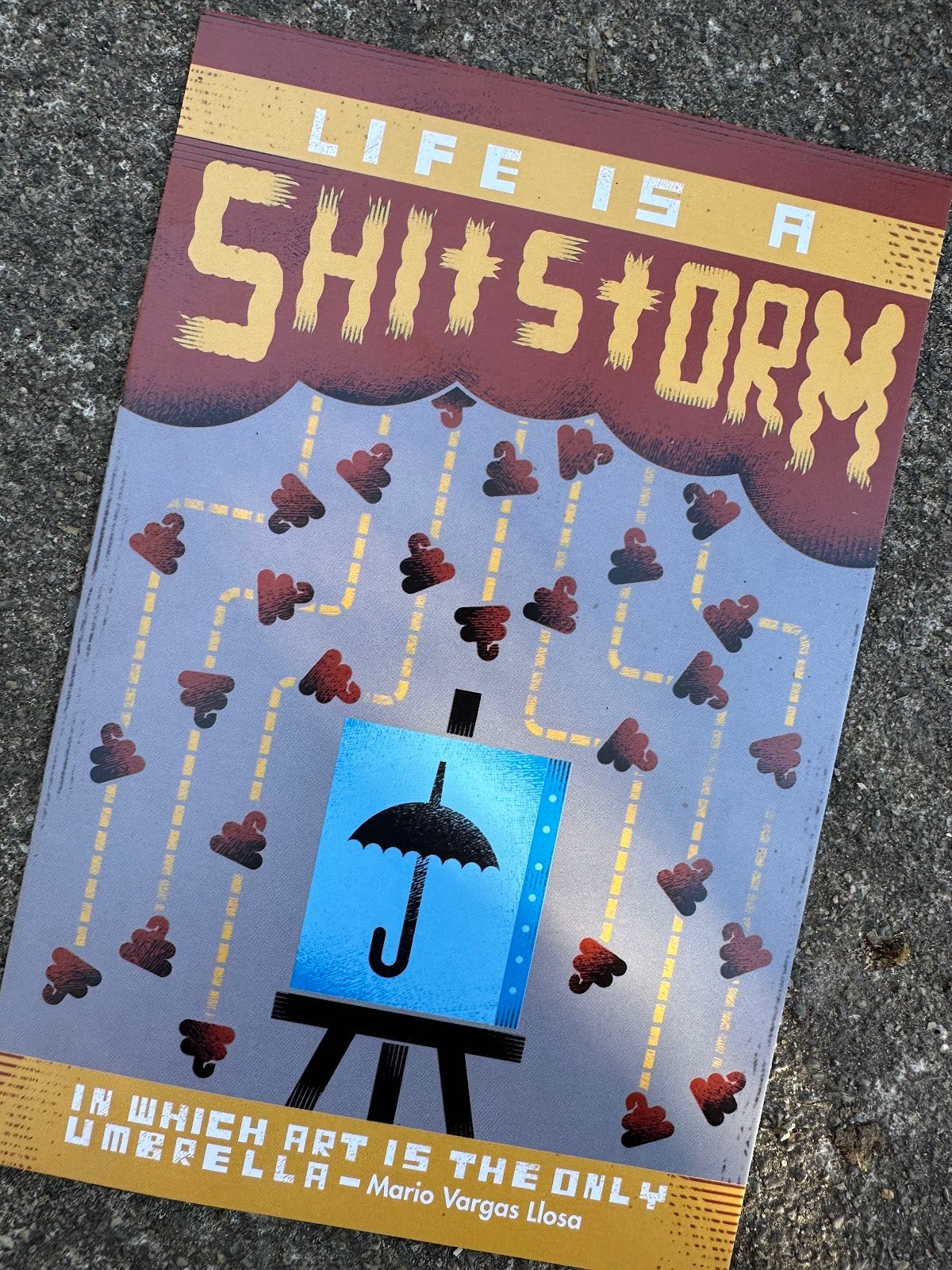If you’re going to be odd, try to also be rich. That will make you eccentric. And if you’re going to be eccentric, commit to the bit. That’s what Dame Edith Sitwell, an English Eccentric, did when she wrote the book English Eccentrics. As one of her contemporaries noted:
“She’s genuinely bogus.”
— Christopher Hassall
In that 1933 collection of biographical vignettes, Sitwell declared eccentricity to be a bulwark against melancholy. What was required, she wrote, was “some exaggeration of the attitudes common to Life. This attitude, rigidity, protest, or explanation, has been called eccentricity by those whose bones are too pliant. But these mummies cast shadows that do not lie in their proper geometrical proportions, and from these distortions dusty laughter may arise.” And better dusty laughter than none at all.
“Life, though, is peculiar,” said Jeremy.
“As compared with what?” said the spider.
— Elizabeth Madox Roberts
Sitwell suggests that “any criticism of the world’s arrangement, if expressed by only one gesture, and that of sufficient contortion, becomes eccentricity.” In geometric terms, it means you orbit around a different point than everyone else. If society is dedicated to money and you focus on art, you are by definition eccentric.
“Be virtuous and you will be eccentric.”
— Mark Twain
Thinking about eccentrics quickly segues into thinking about hermits. Anyone who decides the world isn’t arranged to their liking may decide to excuse themselves from its arbitrary rules. Sitwell recounts that various wealthy Englishmen used to advertise for ornamental hermits, hungering as they were for “the spectacle of an aged person with a long grey beard, and a goatish rough robe, doddering about amongst the discomforts and pleasures of Nature.” Nice work if you can get it.
“The English like eccentrics. They just don’t like them living next door.”
— Julian Clary
In 1950s Toronto, you would be forgiven for thinking an eccentric was someone who stayed out past 9 p.m., the hour at which they rolled up the sidewalks by vice-regal proclamation of the Lieutenant-Governor. All alcohol was brown and garlic was against the law. But from that sterile milieu grew Glenn Gould, one of the great pianists of all time (though we can’t much vouch for anyone before the 1890s; no vinyl back then, not even for ready money) and such a bona fide Canadian that he routinely drank late-night double doubles (coffee with two creams and two sugars).
“I know a gorgeous Miamian in her fifties who’s considered an eccentric simply because she’s never had work done.”
— Pamela Druckerman
Gould declared himself “Canada’s most experienced hermit,” God bless him, and he made a boyhood friend of the late cultural critic Robert Fulford. Together they tried to promote experimental composers to an ungrateful city and argued about jazz. Fulford, posits Jeet Heer, benefited greatly from being eccentric adjacent — also next to genius, sure, but perhaps more usefully an oddball in a square town. As Fulford wrote, his pal Glenn “was clearly an oddity, but he was not despised for it. His prodigious and mysterious talent made him immune (or so I recall) to the cruelty that adolescents routinely visit on the exceptional among them.”
“My eccentricities, if you look at them carefully, are just intelligent safeguards against the common dangers of life.”
— “Howard Hughes,” as invented by scam biographer Clifford Irving
If you can’t be rich, be brilliant. Or befriend someone who is either or both, and learn from them as they display some exaggeration of the attitudes common to life.
November’s Riposte Card, QED
It’s been said that:
“Life is a shitstorm in which art is the only umbrella.”
— Mario Vargas Llosa
And unfortunately I cannot mail my paid subscribers the beautiful Riposte Card that features that quip because Canada Post is on strike. A fitting denouement! But subscribe today and your umbrella will eventually be shipped out with no small amount of alacrity.
Quote Vote
“I have often wished I had time to cultivate modesty but I am too busy thinking about myself.”
— Edith Sitwell
Almost exactly five years ago, Edith Sitwell was the subject of Get Wit Quick No. 21. When I remembered that, my reaction was:
That was Issue No. 281 of Get Wit Quick, a newsletter that salsas to the beat of its own trombone. Flaubert famously recommended being regular and orderly in your life so that you may be violent and original in your work, but what about being orderly and original? My book Elements of Wit: Mastering The Art of Being Interesting was not at all violent. Be yourself, everyone else is taken with tapping the ❤️ below, but maybe tap it, too.




dear benjamin,
great quotes this week! some of my faves:
“Be virtuous and you will be eccentric.”
— Mark Twain
“Life, though, is peculiar,” said Jeremy.
“As compared with what?” said the spider.
— Elizabeth Madox Roberts
“Life is a shitstorm in which art is the only umbrella.”
— Mario Vargas Llosa
thank you for sharing as always!
love
myq
That was scary! Is Get Wit Quick getting hacked? Time to volunteer to be an eccentric hermit. I favor a treehouse within sound of ocean waves somewhere it’s possible to live off the fat of the land without actual labor.
This week’s post is a definite favorite.
Being a card-carrying bleeding heart liberal living in the U.S., I want a post on delusional optimism.
Thanks for being the generous sharing soul you are, Ben, and thanks to Sarah! Oases of sanity.💕